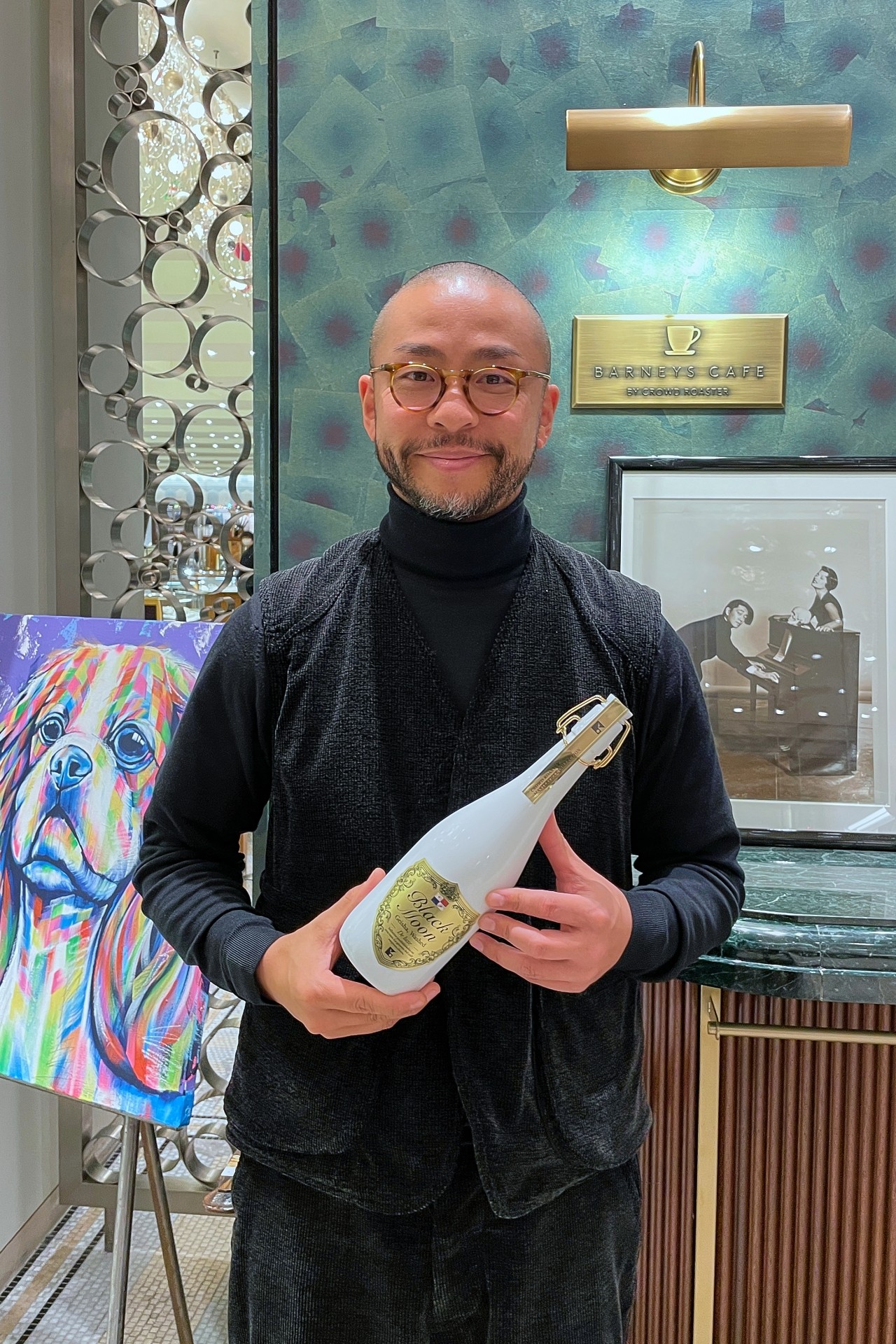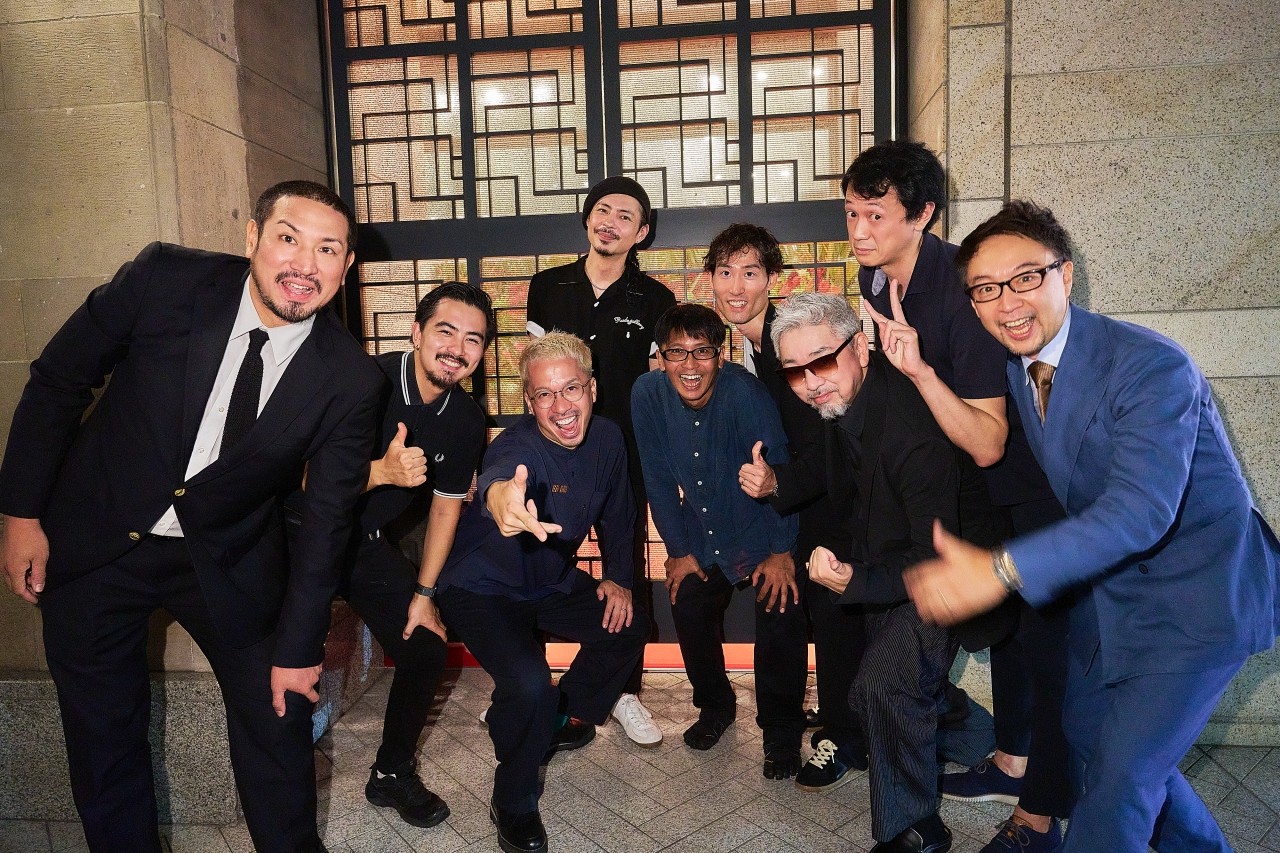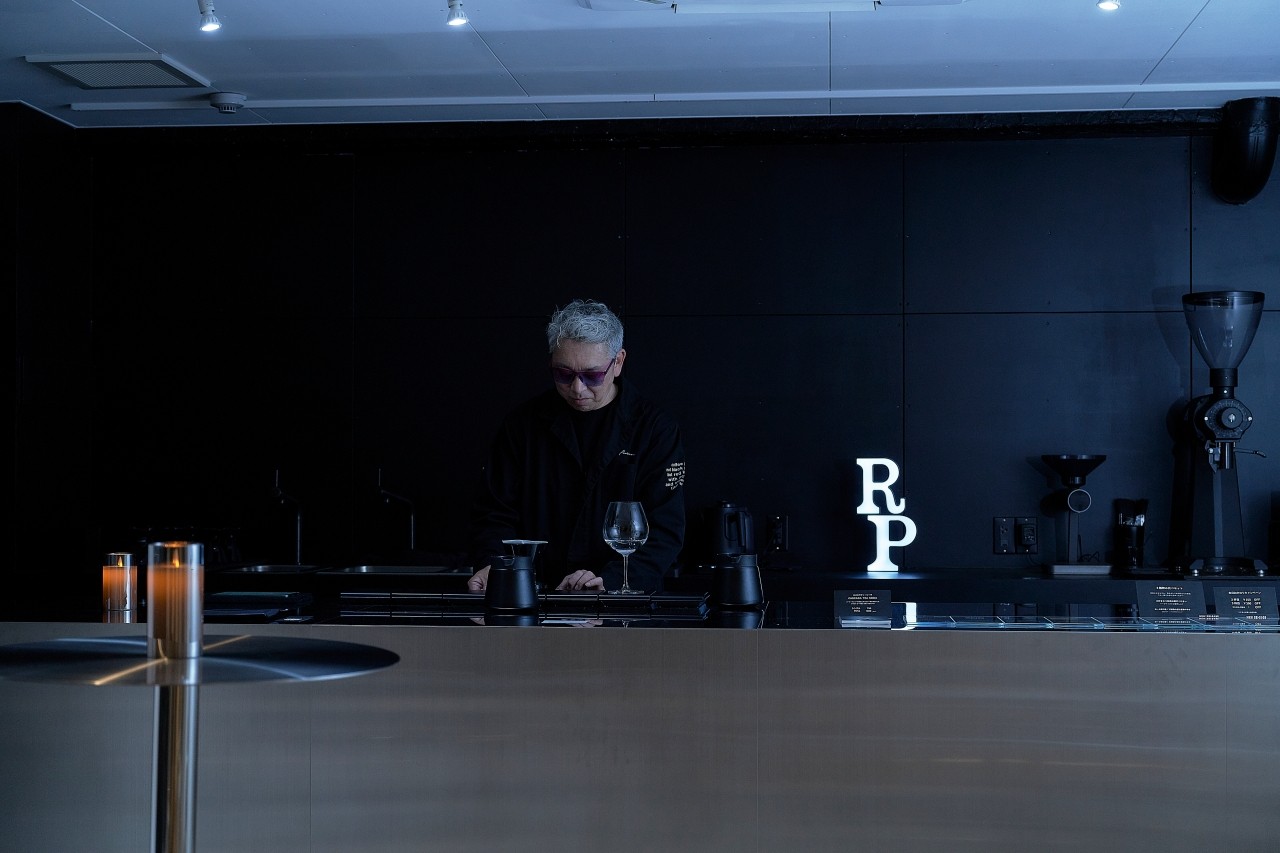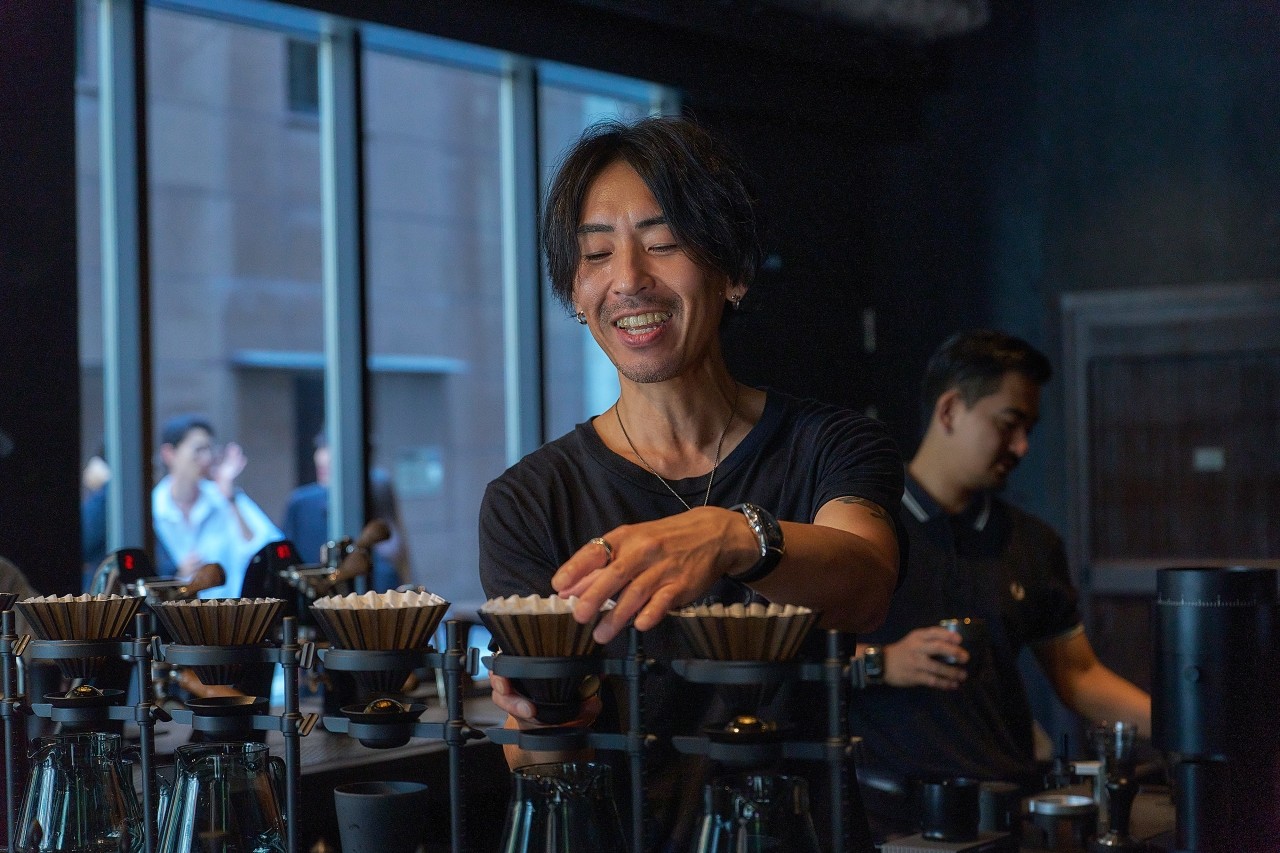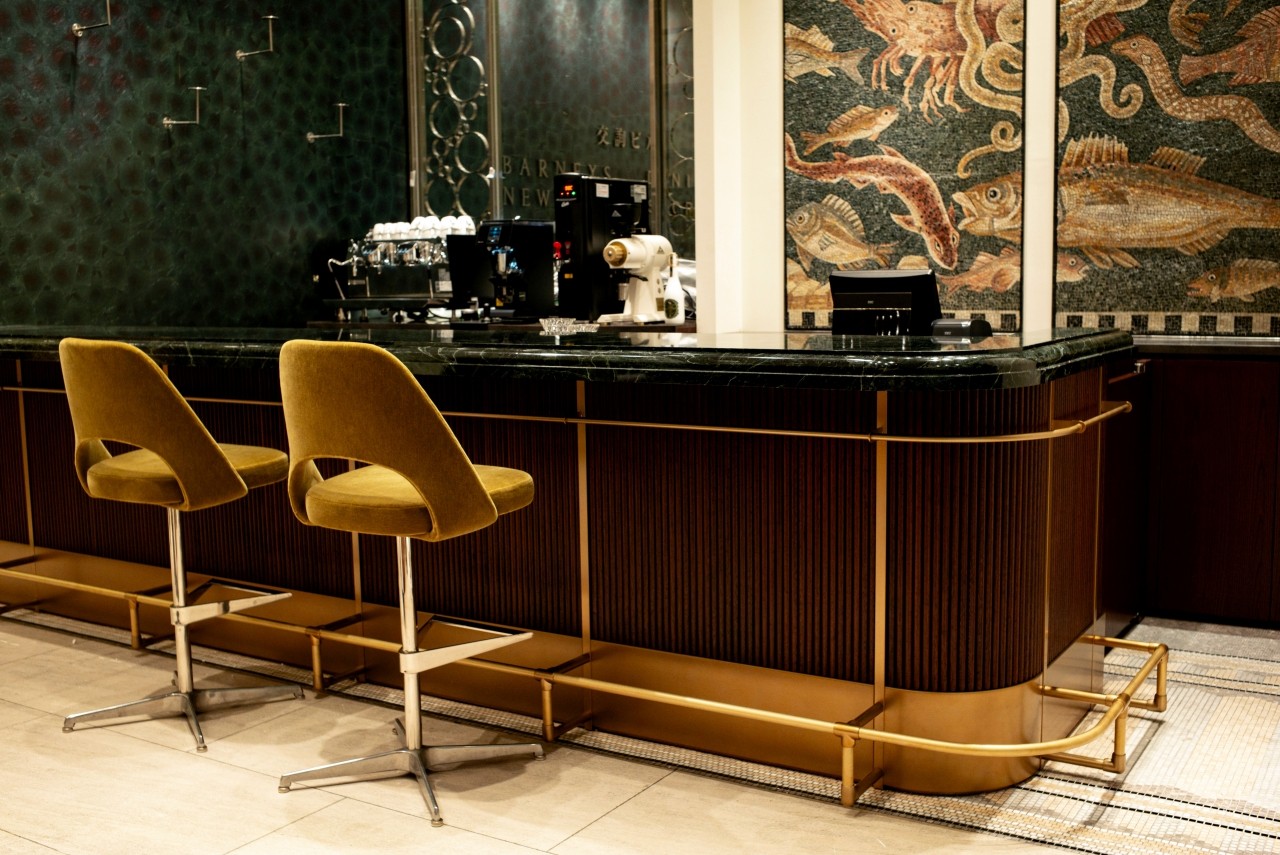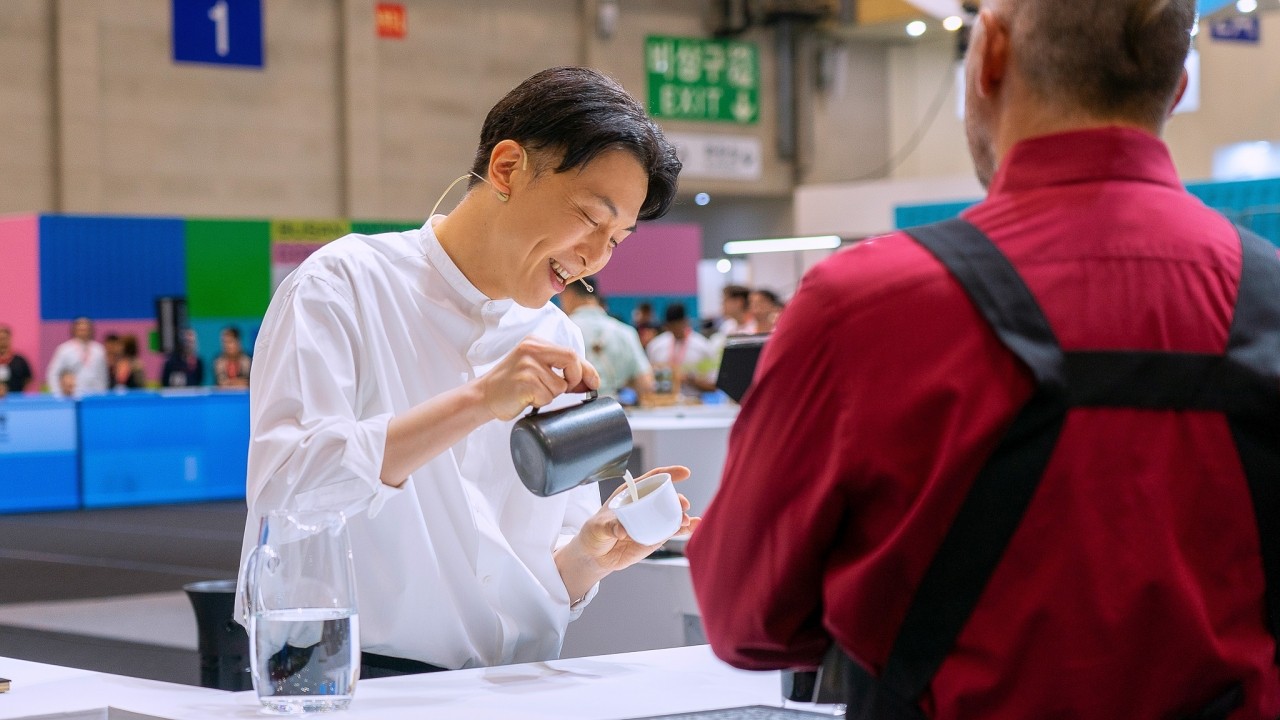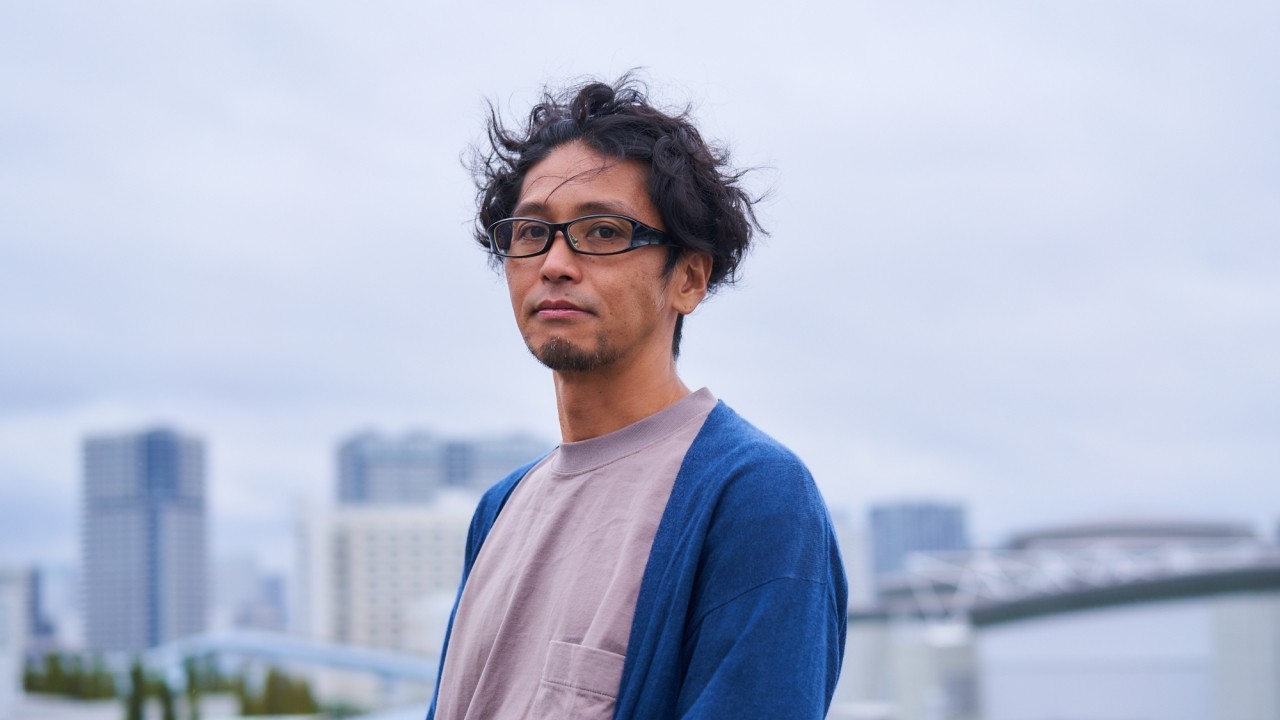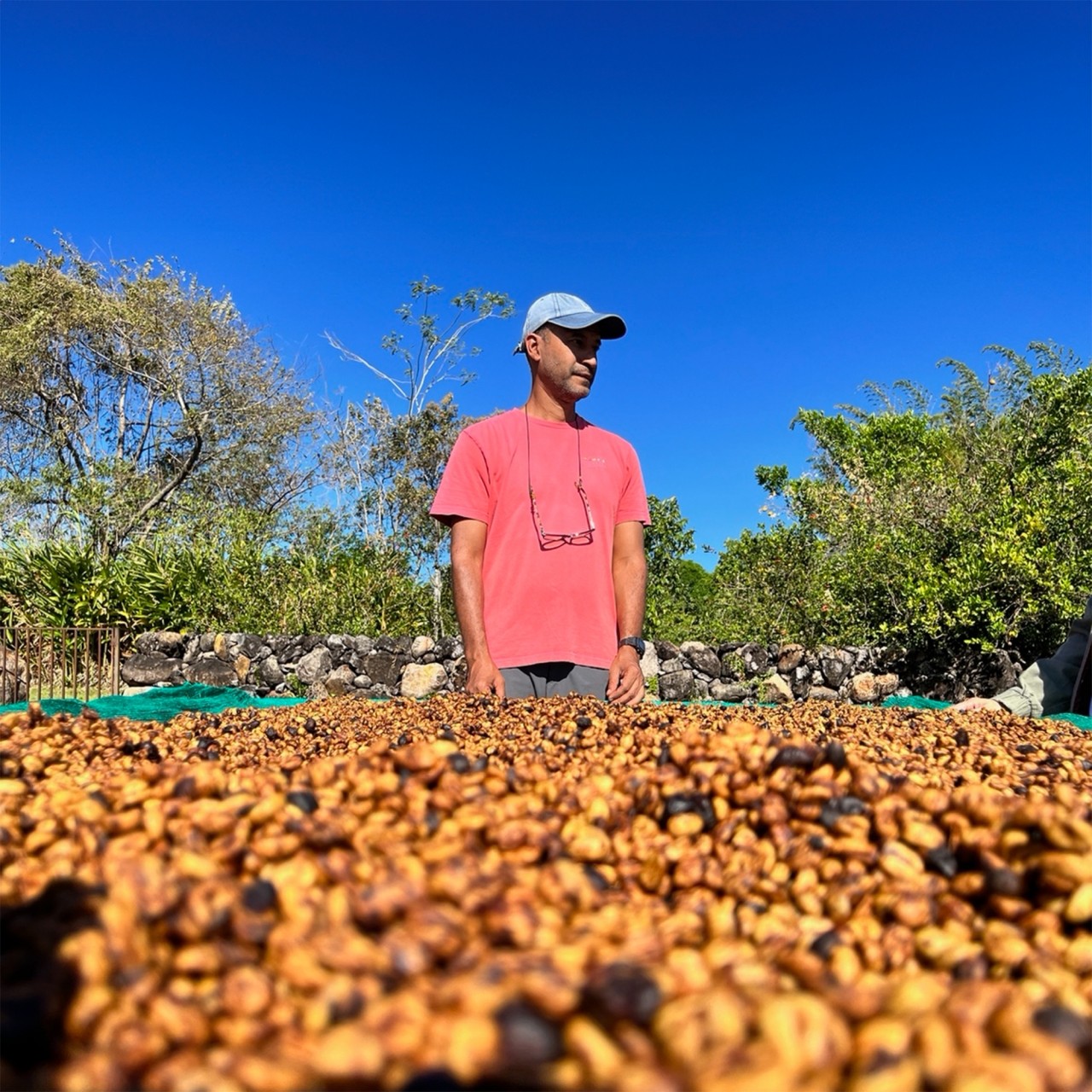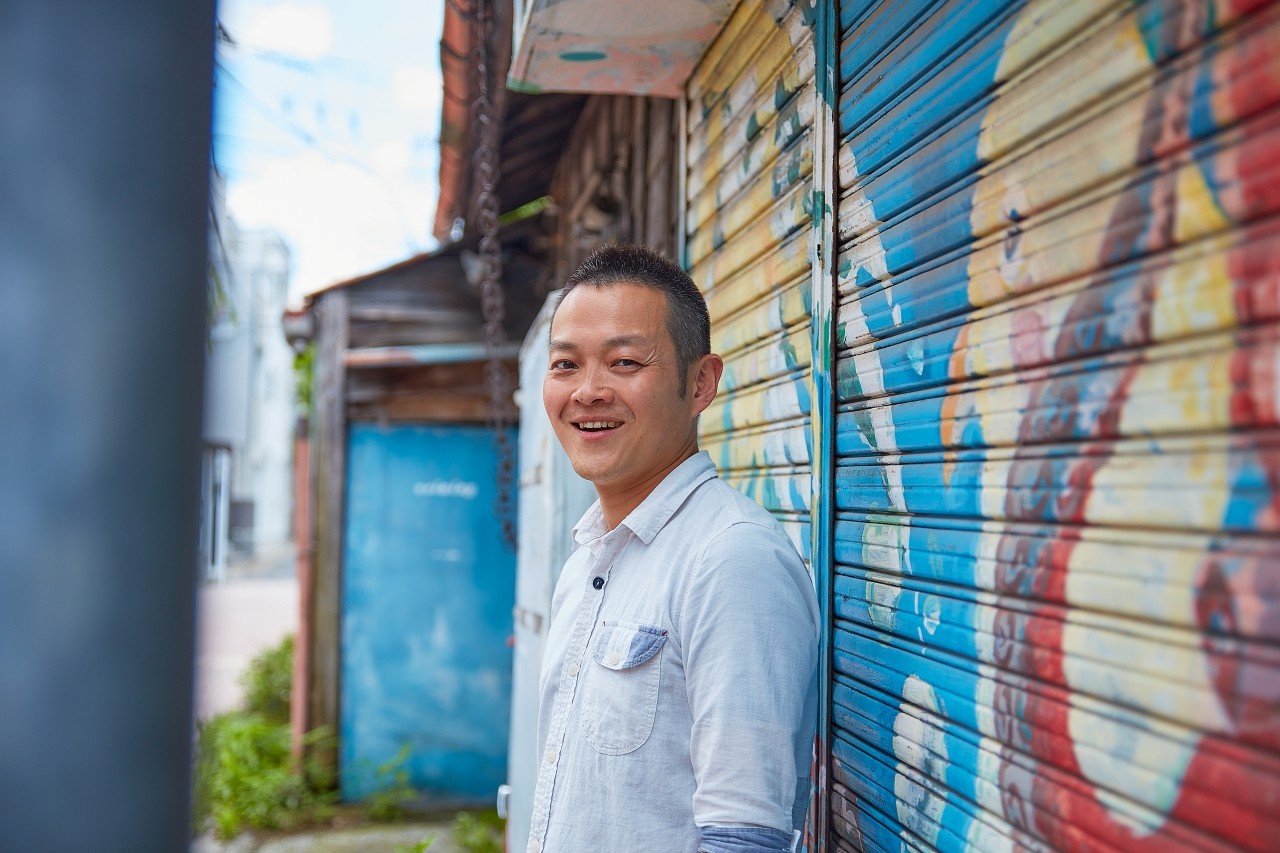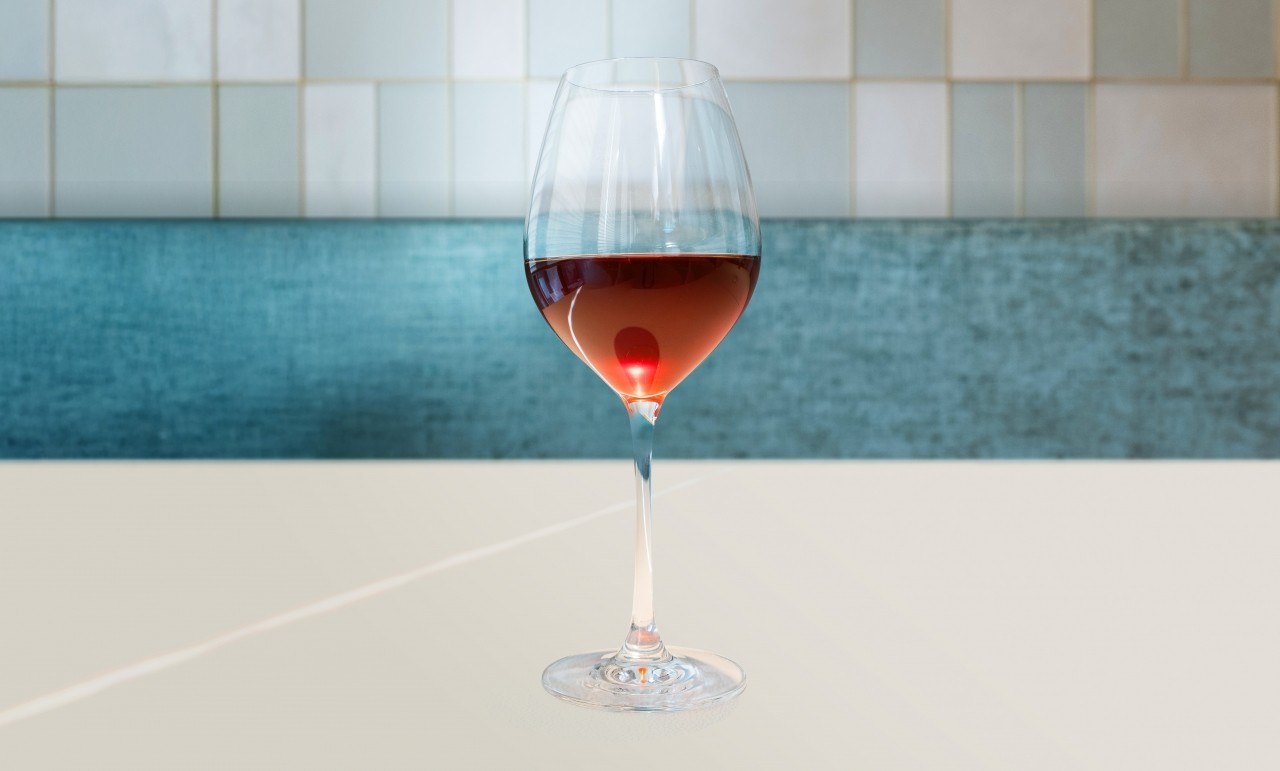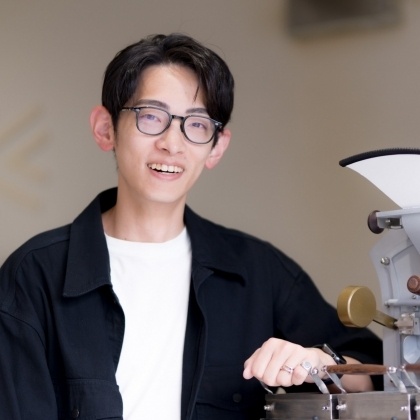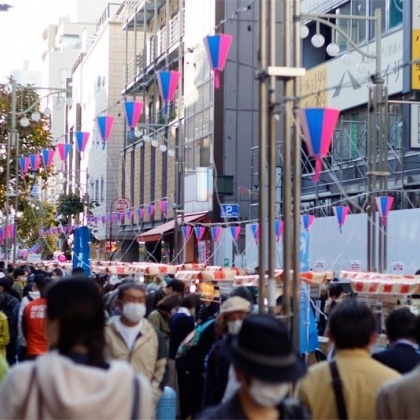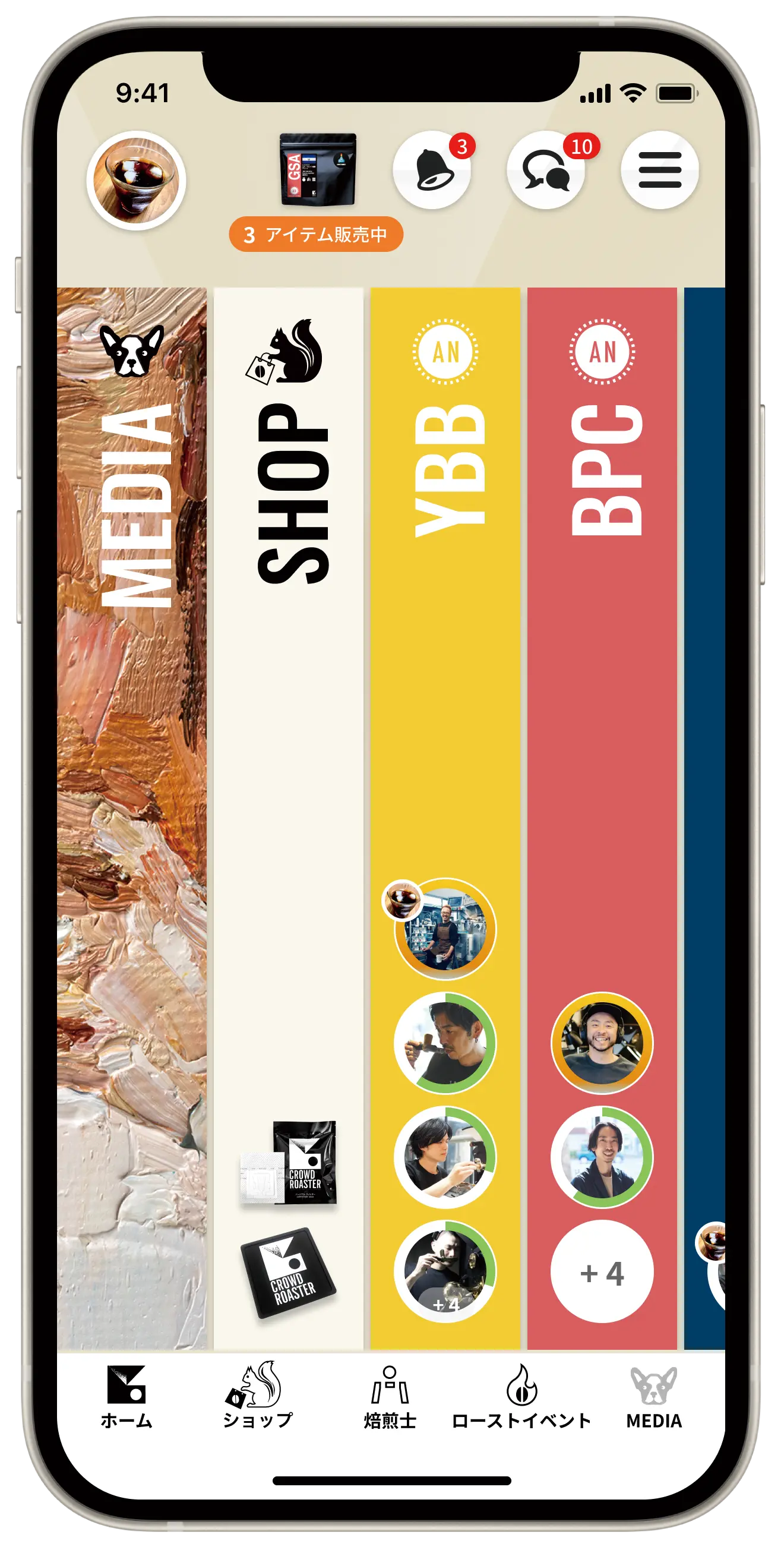Takayuki Ishitani, the barista who won his third Japanese championship [Special Interview]
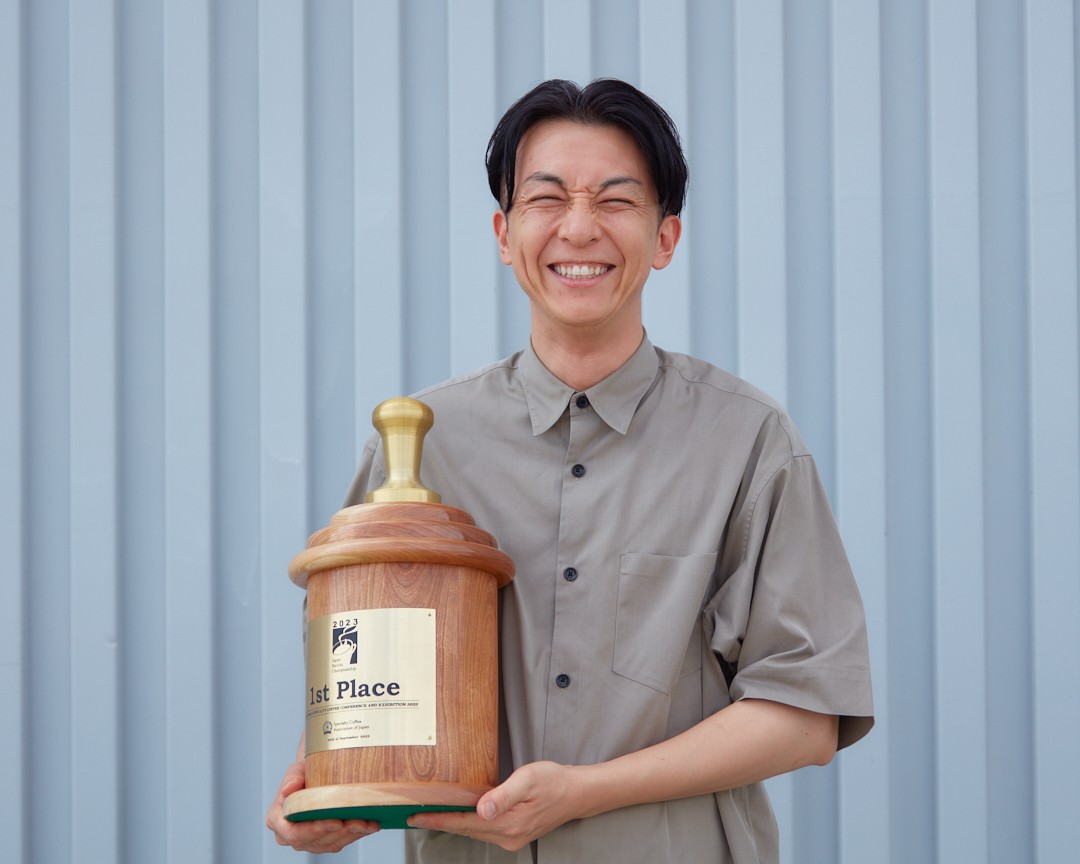
On September 28th, 2023, at the finals of the Japan Barista Championship (JBC) held at SCAJ2023, Takayuki Ishitani, an advisor for CROWD ROASTER , won his third championship!
He said that there was a lot of pressure going into this tournament as the defending champion, with many rivals. After the tournament ended in early October, he looked back on the experience.
The biggest feeling after winning was "relief."

--First of all, congratulations on winning the Japan Barista Championship. This is your third time winning, how does it feel to have won?
Ishiya: Yes, I am happy, but unlike the first and second times, the biggest feeling I have is relief.
Everyone was watching me as if I had made it to the finals at the last world championships (I placed 4th at the WBC 2022 tournament), so I didn't think I was feeling much pressure, but I was extremely nervous in the semi-finals.
--There was also equipment trouble during the semi-finals. As a result, Ishiya-san had to start over at the end, how did you feel at that time?
Ishiya: Even though we had some trouble, we were lucky to be able to start over from the beginning. It was physically tough, but mentally I felt lucky.
──I see. The MCs said that the excitement was building up especially during the finals, and that the finals were the most relaxed.
Ishiya: That's right. In the semi-finals, I was so nervous that I wondered why I was so nervous, and even when I look back on it, I can't help but laugh. So, in the finals, I stopped thinking about difficult things and just went into it with the mindset that I wanted the judges to drink delicious coffee and have fun, and I think I was able to enter the competition naturally in a good mental state.
--You said that you participated this time with the desire to compete in the world championships again, but were you confident?
Ishiya: That's right, I was confident that the day would be okay as long as I was prepared for it. But in the actual event, mistakes like spilling a cup or hitting it with your hand when serving it are inevitable. I'm confident that as long as nothing irregular happens, it will be okay, so I'm looking forward to it every year.
--How much practice do you usually do for a competition?
Ishitani: I've rehearsed the 15-minute final competition run-through about a dozen times. The hardest part is creating the presentation beforehand. It's the same every time, but it takes me about 1-2 months to think about the beginning, development, twist and conclusion - what theme to set, what to say at the beginning, what to say at the end. The most difficult time is coming up with the first phrase.
Ishiya: Yes, I am happy, but unlike the first and second times, the biggest feeling I have is relief.
Everyone was watching me as if I had made it to the finals at the last world championships (I placed 4th at the WBC 2022 tournament), so I didn't think I was feeling much pressure, but I was extremely nervous in the semi-finals.
--There was also equipment trouble during the semi-finals. As a result, Ishiya-san had to start over at the end, how did you feel at that time?
Ishiya: Even though we had some trouble, we were lucky to be able to start over from the beginning. It was physically tough, but mentally I felt lucky.
──I see. The MCs said that the excitement was building up especially during the finals, and that the finals were the most relaxed.
Ishiya: That's right. In the semi-finals, I was so nervous that I wondered why I was so nervous, and even when I look back on it, I can't help but laugh. So, in the finals, I stopped thinking about difficult things and just went into it with the mindset that I wanted the judges to drink delicious coffee and have fun, and I think I was able to enter the competition naturally in a good mental state.
--You said that you participated this time with the desire to compete in the world championships again, but were you confident?
Ishiya: That's right, I was confident that the day would be okay as long as I was prepared for it. But in the actual event, mistakes like spilling a cup or hitting it with your hand when serving it are inevitable. I'm confident that as long as nothing irregular happens, it will be okay, so I'm looking forward to it every year.
--How much practice do you usually do for a competition?
Ishitani: I've rehearsed the 15-minute final competition run-through about a dozen times. The hardest part is creating the presentation beforehand. It's the same every time, but it takes me about 1-2 months to think about the beginning, development, twist and conclusion - what theme to set, what to say at the beginning, what to say at the end. The most difficult time is coming up with the first phrase.
The reason behind the theme "Making barista dreams come true"
──After all that hard work, your final presentation was a surprise to many, as it was presented in the following order: milk beverage, signature beverage, espresso. Could you tell us why?
Ishiya: That's right. I had been practicing milk quite a bit before the preliminaries, and it was a drink I was confident in, so it was the easiest theme for me. This time the theme was "making your dreams come true," and although milk hadn't worked out well for a long time, I now have this kind of coffee, so it's easier to convey the story of how my dreams have come true, and I thought it would be important to first grasp the judges' feelings.
Of course, I thought about the order of the food when I was planning my presentation, but I thought it would be best to have the espresso at the end.
In movies and the like, there are several climaxes, and starting with an espresso certainly builds up the excitement, but I wondered if it would be difficult to create that same climax multiple times. I deliberately chose the order to make the judges feel the deliciousness of the milk first, then create a climax with the signature, and finish with the espresso, as I thought it would create multiple moments that would get the judges excited.
Ishiya: That's right. I had been practicing milk quite a bit before the preliminaries, and it was a drink I was confident in, so it was the easiest theme for me. This time the theme was "making your dreams come true," and although milk hadn't worked out well for a long time, I now have this kind of coffee, so it's easier to convey the story of how my dreams have come true, and I thought it would be important to first grasp the judges' feelings.
Of course, I thought about the order of the food when I was planning my presentation, but I thought it would be best to have the espresso at the end.
In movies and the like, there are several climaxes, and starting with an espresso certainly builds up the excitement, but I wondered if it would be difficult to create that same climax multiple times. I deliberately chose the order to make the judges feel the deliciousness of the milk first, then create a climax with the signature, and finish with the espresso, as I thought it would create multiple moments that would get the judges excited.
Encounter with coffee beans
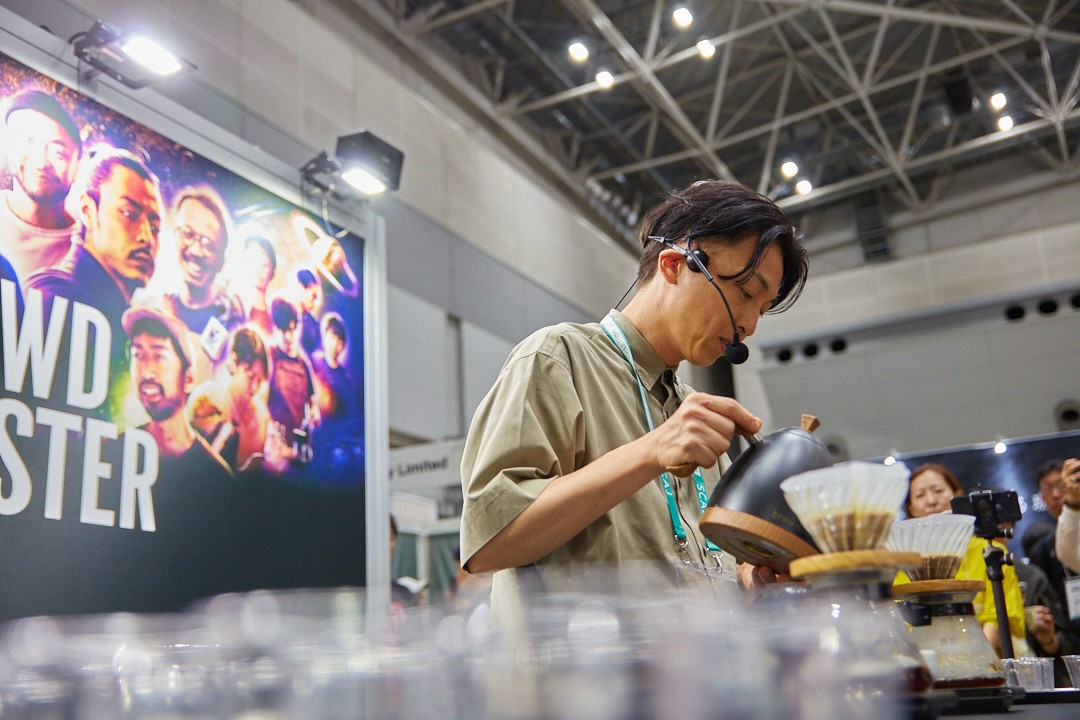
──As for the coffee this time, the milk and signature coffees were mainly Finca Milan from Colombia, and the espresso was Deborah Geisha from Panama, with a little Milan added in. How did you come across the beans for this competition?
Ishitani: I actually went to Panama in April 2023 and did cuppings at various farms, and Geisha from Deborah Farm was the coffee I thought was the most delicious. So I asked the producer directly, "I'm going to enter a competition, so I want to use it," and they said, "If you're going to use it in a competition," and they gave it to me. Since the selection method is washed, it's Shin opposite of the recent fermentation process, so I was actually a little worried about how it would be evaluated.
But I was determined that I wanted to use it in espresso because I thought it was delicious. After that, while searching in consultation with the roaster, I found the Milan farm in Colombia interesting. They are a producer that is working on a difficult process called the "culturing process," which produces an interesting flavor.
So I chose it because I thought it would be interesting to combine cutting edge technology with the classic, traditional Geisha style.
--How long does it actually take you to select coffee beans from the large selection?
Ishiya: It doesn't take much time to find the beans. I basically choose from what the roaster has. I don't often say that a particular bean is the best, so it's important to consider who will roast it and who you want to work with.
Coffee beans are a harvest product, so we cannot use coffee that is not in season, and we select coffee that is in good condition at the time of the tournament.
──Because you work individually under the name TAKA ISHITANI, it must be important for you to work with a reliable roaster.
Ishiya: That's right, I really trust the roasters and leave it to them. Of course, I give them feedback after tasting it, saying things like, "It could be done a little bit differently," but they respond with, "I tried roasting it like this next time," so I trust them in that regard.
──The vibrant flavor of the signature beverage was particularly striking for this coffee. While it's based on espresso, you've added a variety of other drinks. I think it's difficult to convey the flavor in words, but I felt that this was exactly what Ishitani-san meant when he first mentioned "new possibilities for coffee."
Ishitani: That's right. First of all, you can't create this kind of taste unless the coffee has a strong individuality. Of course, I think there are many delicious dark roast coffees, but if that's all you get, the tastes end up being similar, and the individuality disappears.
Creating a signature beverage is similar to making a cocktail. The key point is that I've become able to use a variety of ingredients, with coffee as one of them. So I ask bartenders for advice and get hints every day, and combine them to create my signature beverage. It's just like making a cocktail.
Ishitani: I actually went to Panama in April 2023 and did cuppings at various farms, and Geisha from Deborah Farm was the coffee I thought was the most delicious. So I asked the producer directly, "I'm going to enter a competition, so I want to use it," and they said, "If you're going to use it in a competition," and they gave it to me. Since the selection method is washed, it's Shin opposite of the recent fermentation process, so I was actually a little worried about how it would be evaluated.
But I was determined that I wanted to use it in espresso because I thought it was delicious. After that, while searching in consultation with the roaster, I found the Milan farm in Colombia interesting. They are a producer that is working on a difficult process called the "culturing process," which produces an interesting flavor.
So I chose it because I thought it would be interesting to combine cutting edge technology with the classic, traditional Geisha style.
--How long does it actually take you to select coffee beans from the large selection?
Ishiya: It doesn't take much time to find the beans. I basically choose from what the roaster has. I don't often say that a particular bean is the best, so it's important to consider who will roast it and who you want to work with.
Coffee beans are a harvest product, so we cannot use coffee that is not in season, and we select coffee that is in good condition at the time of the tournament.
──Because you work individually under the name TAKA ISHITANI, it must be important for you to work with a reliable roaster.
Ishiya: That's right, I really trust the roasters and leave it to them. Of course, I give them feedback after tasting it, saying things like, "It could be done a little bit differently," but they respond with, "I tried roasting it like this next time," so I trust them in that regard.
──The vibrant flavor of the signature beverage was particularly striking for this coffee. While it's based on espresso, you've added a variety of other drinks. I think it's difficult to convey the flavor in words, but I felt that this was exactly what Ishitani-san meant when he first mentioned "new possibilities for coffee."
Ishitani: That's right. First of all, you can't create this kind of taste unless the coffee has a strong individuality. Of course, I think there are many delicious dark roast coffees, but if that's all you get, the tastes end up being similar, and the individuality disappears.
Creating a signature beverage is similar to making a cocktail. The key point is that I've become able to use a variety of ingredients, with coffee as one of them. So I ask bartenders for advice and get hints every day, and combine them to create my signature beverage. It's just like making a cocktail.
The underlying theme is "being close to the customer"
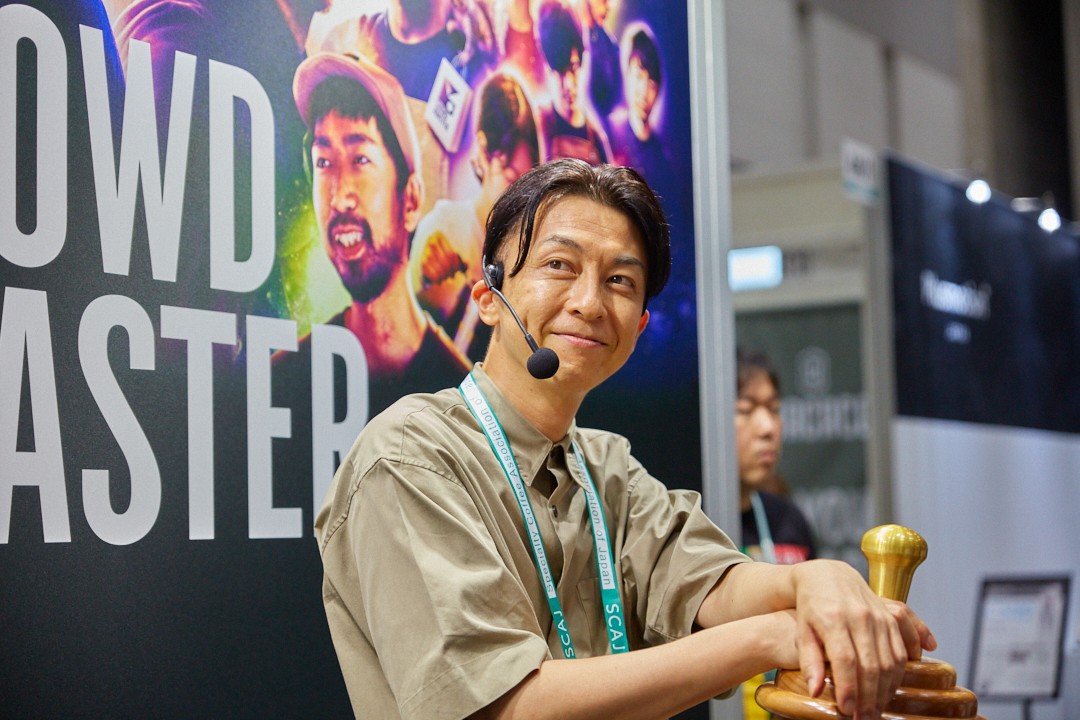
──So the theme that successfully connects things that seem unrelated - milk, signature, and espresso - is "making ideals a reality."
Ishitani: That's right. On top of that, we made it a priority to be close to the customer during the final espresso.
Extracting Geisha is very difficult, and often results in a skewed flavor. Fermented coffee has a strong aroma, and I think people are surprised when they drink it, but a clean washed coffee like Geisha is hard to convey its quality. Those who are familiar with it will think, "This kind of washed coffee is delicious after all," but those who aren't will probably find it "sour" or "weak." That's a shame.
However, adding a little Milan makes the flavor profile easier to understand, which makes it easier to communicate to customers. The final ideal is to be close to the customer and share the coffee. That was the underlying theme.
However, I had to keep my presentation during the competition very condensed, so I wasn't able to talk about that much.
However, I wanted to convey the excitement of this kind of specialty coffee, and that with SCAJ celebrating its 20th anniversary, what I had always dreamed of has become a reality.
──So there was a lot of thought put into adding just a little bit of Milan, which was used at the beginning.
Ishitani: That's right. If you add a different coffee other than Milan, it probably won't be consistent.
Also, I'm not sure how much of this was conveyed to the judges, but I was hoping they would understand that every coffee bean is slightly different, and that it takes skill to control that.
It's not easy to make all the coffees using the same coffee and the same grind, but this time the beans are all different, and the grinder's diamond ring, mesh, and recipe have all been changed.
Ishitani: That's right. On top of that, we made it a priority to be close to the customer during the final espresso.
Extracting Geisha is very difficult, and often results in a skewed flavor. Fermented coffee has a strong aroma, and I think people are surprised when they drink it, but a clean washed coffee like Geisha is hard to convey its quality. Those who are familiar with it will think, "This kind of washed coffee is delicious after all," but those who aren't will probably find it "sour" or "weak." That's a shame.
However, adding a little Milan makes the flavor profile easier to understand, which makes it easier to communicate to customers. The final ideal is to be close to the customer and share the coffee. That was the underlying theme.
However, I had to keep my presentation during the competition very condensed, so I wasn't able to talk about that much.
However, I wanted to convey the excitement of this kind of specialty coffee, and that with SCAJ celebrating its 20th anniversary, what I had always dreamed of has become a reality.
──So there was a lot of thought put into adding just a little bit of Milan, which was used at the beginning.
Ishitani: That's right. If you add a different coffee other than Milan, it probably won't be consistent.
Also, I'm not sure how much of this was conveyed to the judges, but I was hoping they would understand that every coffee bean is slightly different, and that it takes skill to control that.
It's not easy to make all the coffees using the same coffee and the same grind, but this time the beans are all different, and the grinder's diamond ring, mesh, and recipe have all been changed.
The World Championship is an opportunity to Manabu about things you don't know yet
──Finally, please tell us about your enthusiasm for the World Championships (WBC) to be held in Korea.
Ishiya: The efforts leading up to the last world championships were a time for me to absorb a lot of things I didn't know. When I think about being able to do that again in six months, I'm really looking forward to it. I'm really looking forward to discovering things I still have to absorb and discover new things.
And of course, I want to get a good result this time. Last time, I achieved my goal of just making it to the finals, so I'd like to do my best to win.
──What are you thinking about in order to become number one in the world?
Ishiya: Even though I'm aiming to win, competitions are still a lot of fun. Rather than working to win, I want to spend 15 minutes having fun expressing things I don't know yet. The competition has just ended, and I haven't decided what I'll do in the next competition yet, so that's where I'm at right now.
--The world championships will be held in May 2024, but will the coffee beans used this time and the presentation not be used?
Ishitani: Over the course of six months, the condition of the coffee will change and newly harvested beans will arrive, so we will of course still have to decide what to use. We will be working on the details of what kind of presentation we will give to the world, as well as the schedule.
──We are looking forward to the World Championships. Thank you, Ishitani-san. And congratulations!
Ishiya: The efforts leading up to the last world championships were a time for me to absorb a lot of things I didn't know. When I think about being able to do that again in six months, I'm really looking forward to it. I'm really looking forward to discovering things I still have to absorb and discover new things.
And of course, I want to get a good result this time. Last time, I achieved my goal of just making it to the finals, so I'd like to do my best to win.
──What are you thinking about in order to become number one in the world?
Ishiya: Even though I'm aiming to win, competitions are still a lot of fun. Rather than working to win, I want to spend 15 minutes having fun expressing things I don't know yet. The competition has just ended, and I haven't decided what I'll do in the next competition yet, so that's where I'm at right now.
--The world championships will be held in May 2024, but will the coffee beans used this time and the presentation not be used?
Ishitani: Over the course of six months, the condition of the coffee will change and newly harvested beans will arrive, so we will of course still have to decide what to use. We will be working on the details of what kind of presentation we will give to the world, as well as the schedule.
──We are looking forward to the World Championships. Thank you, Ishitani-san. And congratulations!
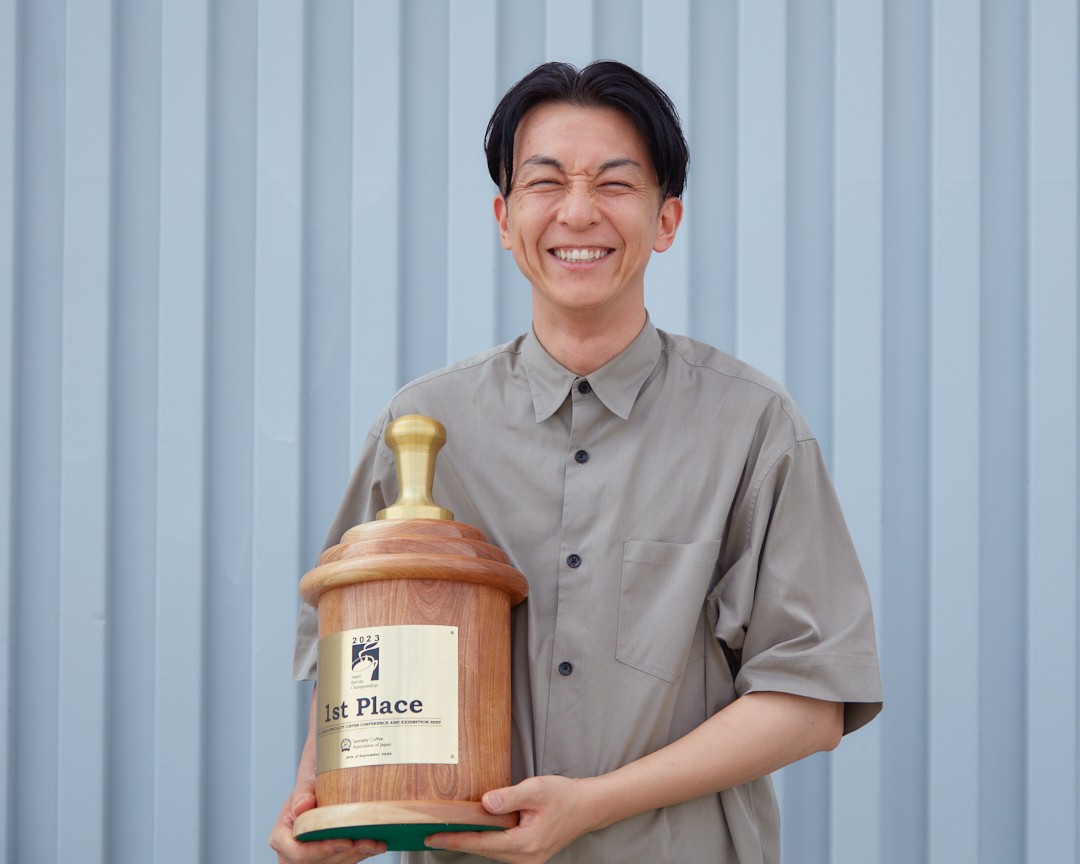
At SCAJ2023, the day after the JBC finals, we had a talk and brewing event with Ishii Yasuo from LEAVES COFFEE at CROWD ROASTER booth.
You can watch the event in the archived stream below!
Please take a look.
2023.10.14
CROWD ROASTER
If you want to enjoy coffee more deeply
" CROWD ROASTER APP"
Manabu at CROWD ROASTER LOUNGE
・Push notifications for article updates・Full of original articles exclusive to CROWD ROASTER
・Direct links to detailed information about green beans and roasters
App-only features
- Choose green beans and roasters to create and participate in roasting events・CROWD ROASTER SHOP: Everything from beans to equipment is readily available
・GPS-linked coffee map function

